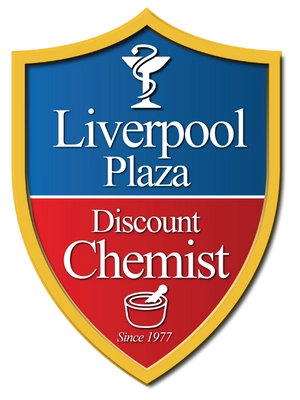Every household should have a small yet reliable supply of over-the-counter (OTC) medicines to handle common health issues. Whether it’s a sudden headache, seasonal allergies, or an upset stomach, being ready can save you a trip to the pharmacy at inconvenient times. Having the right medicines on hand not only offers quick relief but also helps manage symptoms before they worsen. Knowing which ones to keep, and how to use them properly, ensures you’re ready for unexpected minor ailments that can affect you or your family any day of the week.
At Liverpool Plaza Discount Chemist, we understand that good preparation is a key part of maintaining your family’s health. Our pharmacists often get asked which OTC medicines are worth stocking up on, so we’ve put together this simple guide. From pain relievers to allergy medication, these are the essential items every home medicine cabinet should have, along with tips to use them safely and effectively.
Pain and Fever Relief
Pain relievers are must-haves in every home. Medications like paracetamol and ibuprofen are ideal for reducing fever, headaches, body pain, and mild inflammation. Paracetamol is generally safe for most adults and children, while ibuprofen also helps with muscle soreness or menstrual cramps.
Keep both types handy, as they work differently and may be suited for different symptoms. Always follow dosage instructions on the label and check for allergies or medical conditions that may require caution. Store these medicines in a cool, dry place, away from direct sunlight and out of children’s reach.
Allergy and Cold Relief
Even if you don’t suffer from chronic allergies, it’s wise to keep antihistamines and cold relief tablets at home. Antihistamines like cetirizine or loratadine help manage runny noses, sneezing, and itchy eyes caused by pollen, dust, or pet dander. For colds, decongestants and cough syrups can help relieve blocked noses and throat irritation.
Tip: Choose a non-drowsy antihistamine for daytime use and one that induces mild drowsiness for bedtime relief. Make sure to check expiry dates regularly, as these medicines are not used as often but are important when symptoms strike.
Stomach and Digestive Aids
Digestive issues are common, and having the right remedies available can make a big difference. Stock up on antacids for heartburn, anti-diarrhoeal tablets for upset stomachs, and oral rehydration salts to prevent dehydration during bouts of diarrhoea or vomiting. Keeping laxatives on hand is also useful for occasional constipation.
Tip: Try to identify the cause of digestive discomfort before taking any medication, especially if symptoms persist. Always drink plenty of water and maintain a balanced diet alongside using these treatments.
First Aid Essentials
Your medicine cabinet isn’t complete without first aid basics. Keep a thermometer, adhesive bandages, antiseptic cream, gauze pads, and medical tape for treating minor cuts and wounds. Include antiseptic wipes or hydrogen peroxide to clean injuries before applying dressings.
It’s also helpful to keep a small pair of scissors, tweezers, and a digital thermometer for convenience. Check your supplies occasionally to ensure everything is clean, sealed, and not past its expiration date.
Skin and Itch Relief
Skin irritation can occur anytime, whether from insect bites, mild burns, or allergic reactions. Keep hydrocortisone cream or calamine lotion ready for soothing redness, itching, and inflammation. Antifungal creams are also good to have for athlete’s foot or other fungal skin conditions.
If you live in an area where mosquito bites are common, store an after-bite lotion or antihistamine cream to help reduce swelling and itchiness. These simple remedies can make a big difference in keeping skin discomfort under control.
Other Helpful Items
A few additional items can round out your medicine cabinet. Keep saline nasal spray for congestion, lozenges for sore throats, and vitamin supplements to support your immune system. If someone in your household is prone to motion sickness, keep motion sickness tablets or patches available.
It’s also smart to maintain a list of emergency contacts and your family’s medical information near your medicine kit. This helps during urgent situations when quick decisions are needed.
Final Thoughts
A well-stocked medicine cabinet is an essential part of every home, offering peace of mind and readiness for unexpected health concerns. By keeping basic over-the-counter medicines and first aid supplies available, you can manage common illnesses effectively and avoid unnecessary stress when symptoms appear. Just remember to check expiry dates every few months, replace used items promptly, and store all medicines safely out of children’s reach.
If you’re unsure which products are best for your family’s needs, visit Liverpool Plaza Discount Chemist and speak with our friendly pharmacists. We’re here to help you choose safe, effective options and provide professional advice for your health and wellbeing.
